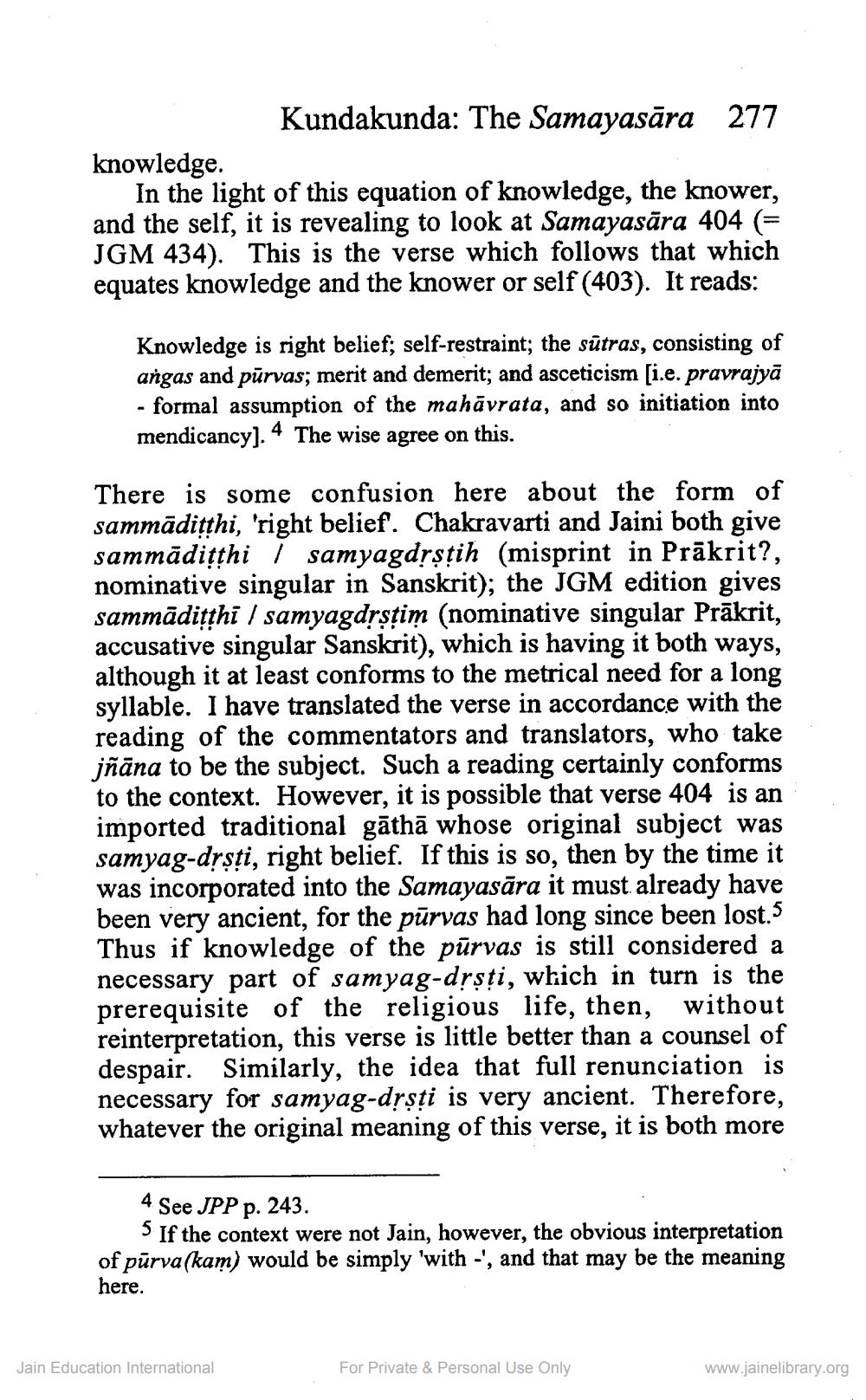________________
Kundakunda: The Samayasāra 277 knowledge
In the light of this equation of knowledge, the knower, and the self, it is revealing to look at Samayasāra 404 (= JGM 434). This is the verse which follows that which equates knowledge and the knower or self (403). It reads:
Knowledge is right belief; self-restraint; the sūtras, consisting of angas and pūrvas; merit and demerit; and asceticism [i.e. pravrajyā - formal assumption of the mahāvrata, and so initiation into mendicancy). 4 The wise agree on this.
There is some confusion here about the form of sammādithi, 'right belief. Chakravarti and Jaini both give sammāditthi 1 samyagdęstih (misprint in Prākrit?, nominative singular in Sanskrit); the JGM edition gives sammāditthi / samyagdrstim (nominative singular Prākrit, accusative singular Sanskrit), which is having it both ways, although it at least conforms to the metrical need for a long syllable. I have translated the verse in accordance with the reading of the commentators and translators, who take jñāna to be the subject. Such a reading certainly conforms to the context. However, it is possible that verse 404 is an imported traditional gāthā whose original subject was samyag-drști, right belief. If this is so, then by the time it was incorporated into the Samayasāra it must already have been very ancient, for the pūrvas had long since been lost.5 Thus if knowledge of the pūrvas is still considered a necessary part of samyag-drsti, which in turn is the prerequisite of the religious life, then, without reinterpretation, this verse is little better than a counsel of despair. Similarly, the idea that full renunciation is necessary for samyag-drsti is very ancient. Therefore, whatever the original meaning of this verse, it is both more
4 See JPP p. 243.
5 If the context were not Jain, however, the obvious interpretation of pūrva(kam) would be simply 'with -', and that may be the meaning here.
Jain Education International
For Private & Personal Use Only
www.jainelibrary.org




